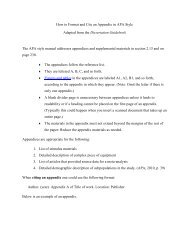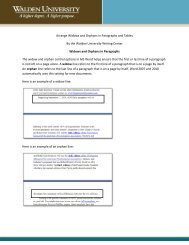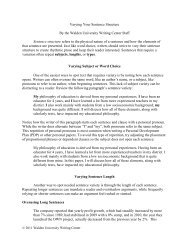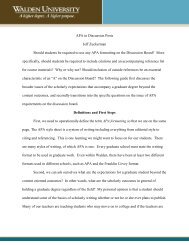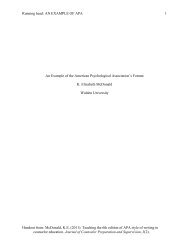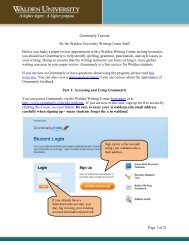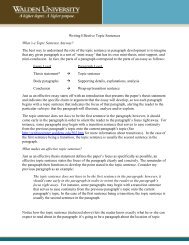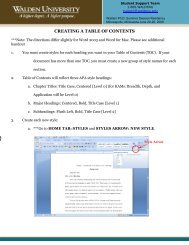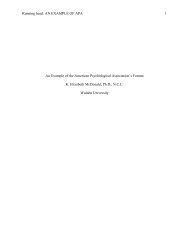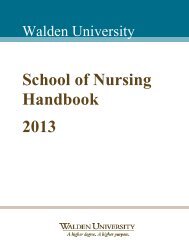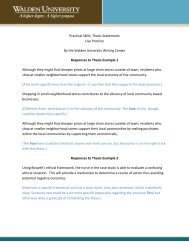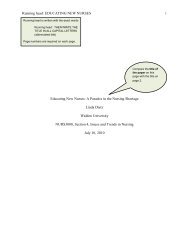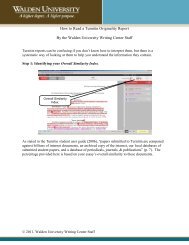Identifying Argument - Writing Center - Walden University
Identifying Argument - Writing Center - Walden University
Identifying Argument - Writing Center - Walden University
You also want an ePaper? Increase the reach of your titles
YUMPU automatically turns print PDFs into web optimized ePapers that Google loves.
Interpretation<br />
Ultimately, the goal of the reading process is to understand the overall meaning of the<br />
text. A writer may “paint a picture” for the reader, but it is ultimately the reader who ascribes<br />
meaning to what is read. The meaning ascribed to the text will be influenced by the reader’s<br />
biases, knowledge of other literature, inferences, and so forth. Interpretation has to do with<br />
making sense of or assigning meaning to something. Facione (2010) defined it as the ability “to<br />
comprehend and express the meaning or significance of a wide variety of experiences, situations,<br />
data, events, judgments, conventions, beliefs, rules, procedures, or criteria” (p. 5). It involves the<br />
ability to determine what is significant, recognize and describe a problem without bias, making<br />
distinctions between main ideas and subideas, and so forth (Facione, 2010). This skill is<br />
particularly important for graduate school students because of the sheer volume of reading that is<br />
expected of them and also because much of academic writing involves synthesizing the ideas of<br />
multiple authors. To be able to perform these tasks effectively, one must be able to interpret<br />
texts. A key skill involved in interpretation is the ability to summarize. When one is able to<br />
summarize each paragraph or each key point, one is on the way to effectively interpreting the<br />
overall meaning of the text. However, this is only the beginning as one must also be able to<br />
draw out the implications of the author’s arguments.<br />
Implications<br />
An implication (n.d.) has been defined as “the conclusion that can be drawn from<br />
something, although it is not explicitly stated.” In making connections between the text and the<br />
world, it is important to think about the possible consequences that might result if the author’s<br />
views are accurate. This however, must be done carefully in order to avoid falling into the<br />
©2010 <strong>Walden</strong> <strong>University</strong> <strong>Writing</strong> <strong>Center</strong>



